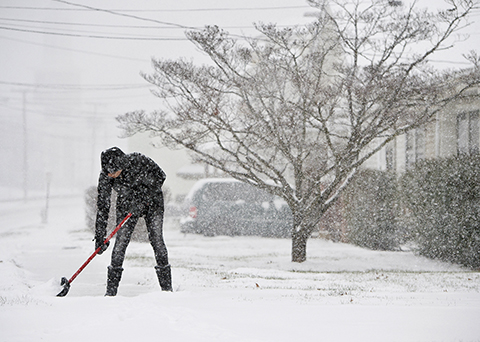By Ghadeer Ghloum and Passant Hisham
KUWAIT: The noblest feeling that distinguishes humans from other creatures is their empathy towards others and their willingness to share in their joys and sorrows. Humans are fundamentally social beings. When they abandon this noble feeling, they have forsaken their desired humanity. This is what Dr Ali Al-Baghlani, specialist in therapy, said during an interview with Kuwait Times, which was conducted to highlight the impact the prevalence of exposure to violence has on individuals’ mental health and the upbringing of children, which leads to normalizing violence in societies.
In this report, Dr Baghlani and Mona Salmeen, a parenting coach, share their insights on the consequences of excessive exposure to violence and parents’ responsibility in ensuring a safe upbringing of their children.
Dr Baghlani emphasized that one of the worst things that can happen to a person is of scenes of violence and destruction to become familiar to them. Unfortunately, those who are accustomed to watching movies and series with a violent content may not care about the misfortunes and pains of others. They become desensitized to disasters and wars, viewing them superficially. This lack of responsibility towards what is happening leads them to believe that there are others who are responsible for providing assistance to the victims or the perpetrators.


Baghlani further added that a study conducted by the College of Humanities at the University of California examined the extent to which others feel a sense of responsibility to help the victim at the time of an incident. It was found that 67 percent of the study’s sample population felt a diminished sense of responsibility, believing it was not their responsibility. Further analysis revealed that individuals who were visually or audibly exposed to violent events had their empathy towards the victims dulled, considering it normal and losing sensitivity towards violent scenes.
According to Dr Baghlani, psychologically, when a person becomes desensitized to these scenes, they may adopt aggressive behaviors in their interactions with others. They may become violent in their use of hurtful words towards individuals or become accustomed to arguments and physical confrontations when facing conflicts in their dealings with people. This results in an increase in incidents and crimes within societies. “We must not forget the psychological and physical harm and the feeling of oppression experienced by the victim due to not receiving support in the face of violence,” he warned.
He then expressed that the noblest feeling that distinguishes humans from other creatures is their empathy towards others and their willingness to share in their joys and sorrows. Humans are fundamentally social beings. When they abandon this noble feeling, they have forsaken their desired humanity, he explained.
On her part, Salmeen suggests parents should encourage open and non-judgmental conversations with their children concerning their thoughts about violence and help them better understand its negative emotional and physical consequences. This can be achieved through using different narratives from books, movies or real-life events as opportunities for discussing how the child can critically assess the violent actions practiced in different situations, and how would the child have acted differently if placed in the same scenario.
“Parents can show their children how conflicts can be resolved through peaceful communication, compromise and understanding,” Salmeen said. She then emphasized on the necessity of limiting children’s exposure to media violence, but with respect for their personal freedom and space. “The best approach is to engage children in the decision-making process and discuss with them the proper media choices and guidelines they should keep in mind before consuming any type of content,” she noted
As violence in the media can sometimes be inevitable, another solution is to provide alternative forms of entertainment for children, such as educational or creative activities, outdoor play and quality family time. Moreover, Salmeen explains that if violent behavior is witnessed, it should be approached wisely by the parents. “It begins with staying calm and approaching the situation with empathy, avoiding shaming or blaming, but rather engaging in a conversation to understand the child’s perspective, asking them why they acted in that manner and what they hoped to achieve.”
She concluded by asserting that it’s best to consider this incident as an opportunity for growth and learning and reinforcing the family’s values and expectations regarding non-violence. This comprehensive approach empowers parents to proactively protect their children from the negative impact of media violence, ensuring a safer and healthier environment for their upbringing.











